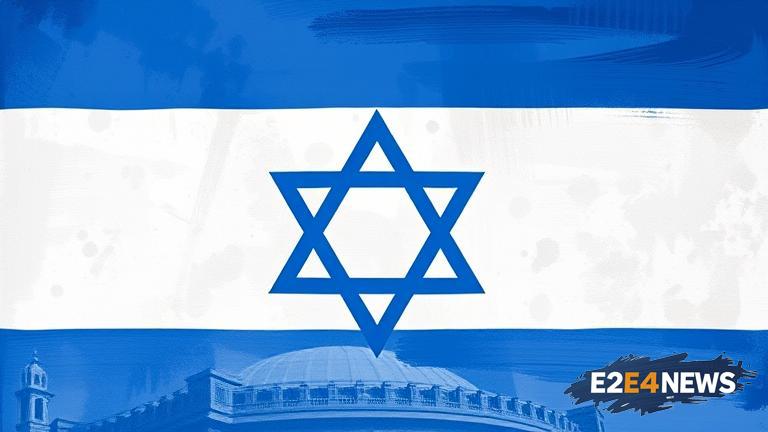A recent court ruling has sparked widespread controversy and debate, particularly among Jewish communities and advocates for free speech. The decision, which has been widely criticized, essentially conflates the identity of Jewish people with the Israeli flag. This conflation has significant implications, as it potentially blurs the lines between a person’s religious or ethnic identity and their political views or national affiliations. Critics argue that such a ruling could lead to the suppression of free speech, especially in contexts where criticism of Israeli policies might be misconstrued as antisemitism. The ruling has been described as ‘awful’ by many, highlighting the fear that it could set a dangerous precedent. The conflation of Jewish identity with the Israeli flag overlooks the diversity within Jewish communities, where opinions on Israel and its policies vary widely. Many Jews around the world distinguish between their religious or cultural identity and their political views on Israel. This distinction is crucial for fostering open dialogue and criticism, which are essential components of democratic societies. The court’s decision has been seen as a threat to these principles, as it may chill public debate and discourage the expression of dissenting views. Furthermore, the ruling has raised concerns about the potential for increased antisemitism, as it simplifies complex identities and issues into overly broad categories. The equation of Jews with the Israeli flag can perpetuate harmful stereotypes and contribute to an environment where antisemitic sentiments can flourish. In response to the ruling, numerous organizations and individuals have spoken out, emphasizing the need to protect free speech and to recognize the diversity of Jewish experiences and opinions. They argue that criticism of Israel or its policies should not be automatically equated with antisemitism, and that such criticisms are essential for a healthy and vibrant democracy. The international community has also been watching the situation closely, with many expressing concern over the implications of the ruling for global efforts to combat antisemitism and protect human rights. The ruling underscores the challenges of balancing the fight against antisemitism with the protection of free speech, highlighting the need for nuanced and thoughtful approaches to these complex issues. As the situation continues to unfold, it remains to be seen how the ruling will be implemented and what its long-term effects will be. However, one thing is clear: the decision has already sparked a significant and necessary conversation about the importance of preserving free speech and respecting the diversity of Jewish identities. In the face of such controversy, it is more important than ever to foster environments where open and respectful dialogue can occur, ensuring that the rights of all individuals are protected. The court’s decision serves as a reminder of the ongoing need for education and awareness about antisemitism, the importance of free speech, and the complexities of Jewish identity. Moving forward, it will be crucial to address these issues with sensitivity and understanding, working towards solutions that balance the protection of vulnerable communities with the preservation of fundamental rights. Ultimately, the goal should be to create a society where individuals can express their views freely, without fear of reprisal, and where all forms of discrimination, including antisemitism, are vigorously combated. The road ahead will undoubtedly be challenging, but through continued dialogue and a commitment to the principles of equality and justice, it is possible to navigate these complex issues and work towards a more inclusive and respectful world for all.
